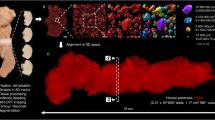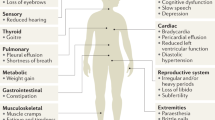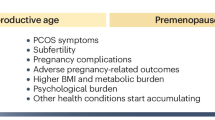Abstract
WE administered labelled (radioactive) sodium phosphate to a hen by subcutaneous injection and, after the lapse of 28 hours, removed 34 yolks from the ovary having an aggregate weight of 30·6 gm. The lecithin of each yolk was then extracted and the phosphorus content and radioactivity determined. The blood plasma, blood corpuscles and the liver were treated in a similar way. The results obtained are seen from the accompanying table, in which for sake of simplicity the specific activity (activity per mgm. P) of the blood plasma phosphatide phosphorus was taken to be 1.
This is a preview of subscription content, access via your institution
Access options
Subscribe to this journal
Receive 51 print issues and online access
$199.00 per year
only $3.90 per issue
Buy this article
- Purchase on Springer Link
- Instant access to full article PDF
Prices may be subject to local taxes which are calculated during checkout
Similar content being viewed by others
References
Skandin, Arch. Physiol., 77, 148 (1937). The work of Artom and his colleagues (NATURE, 139, 836 (1937); Arch. internal. Physiol., 49, 32, 37) is also based on the assumption that phosphatide P does not exchange.
Comp. Gerhartz, H., Arch. gesamt. Physiol., 156, 215 (1914).
Author information
Authors and Affiliations
Rights and permissions
About this article
Cite this article
HAHN, L., HEVESY, G. Origin of Yolk Lecithin. Nature 140, 1059–1060 (1937). https://doi.org/10.1038/1401059a0
Issue Date:
DOI: https://doi.org/10.1038/1401059a0
This article is cited by
-
Yolk protein uptake in the oocyte of the Asian tiger mosquito Aedes albopictus (Skuse) (Diptera: Culicidae)
Parasitology Research (2012)
-
Untersuchungen �ber den �bergang markierter Phosphate in das Nervensystem, eine spezielle Anwendung der Indikatormethode
Die Naturwissenschaften (1946)
-
Formation of Milk
Nature (1938)
Comments
By submitting a comment you agree to abide by our Terms and Community Guidelines. If you find something abusive or that does not comply with our terms or guidelines please flag it as inappropriate.



